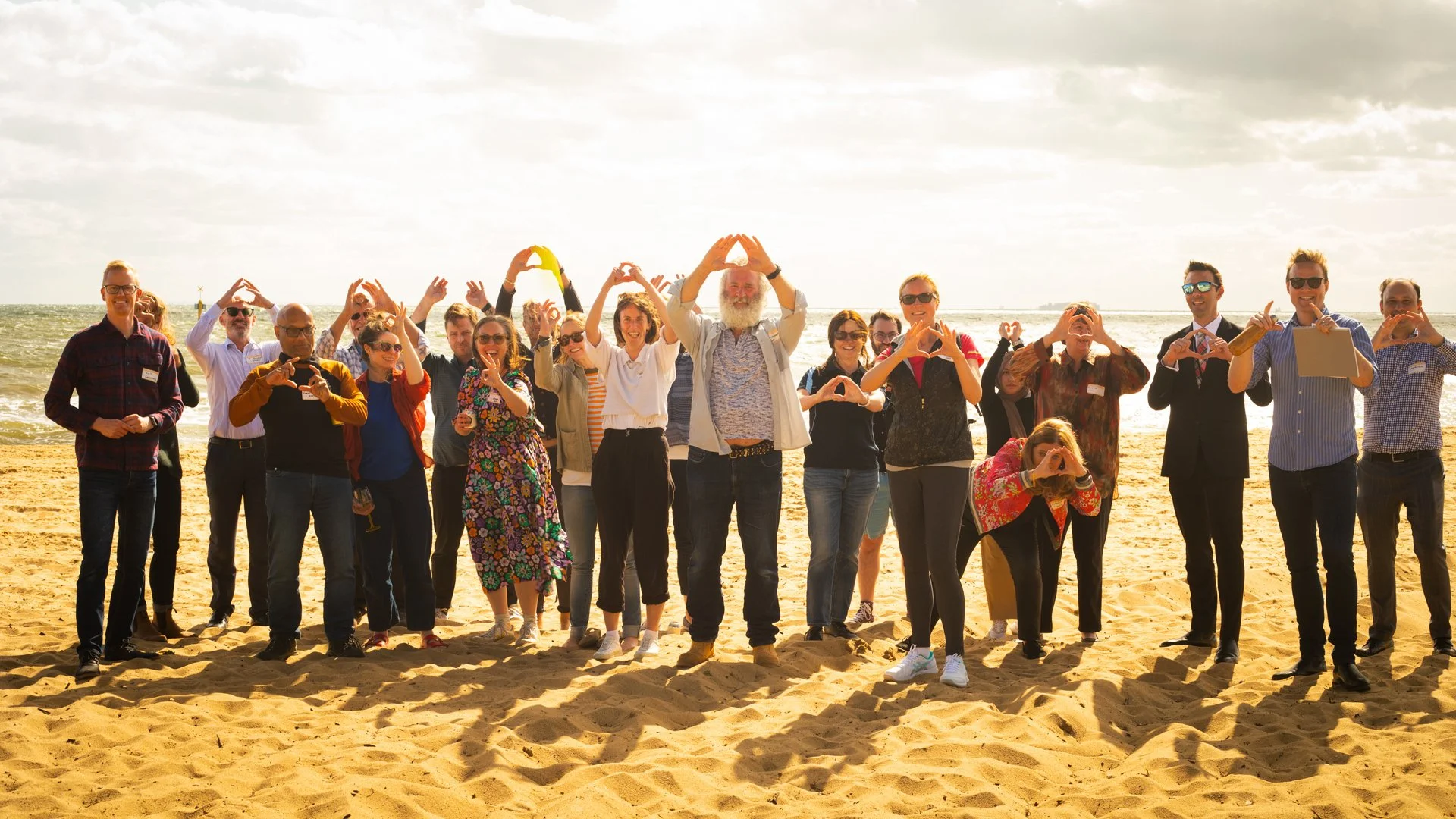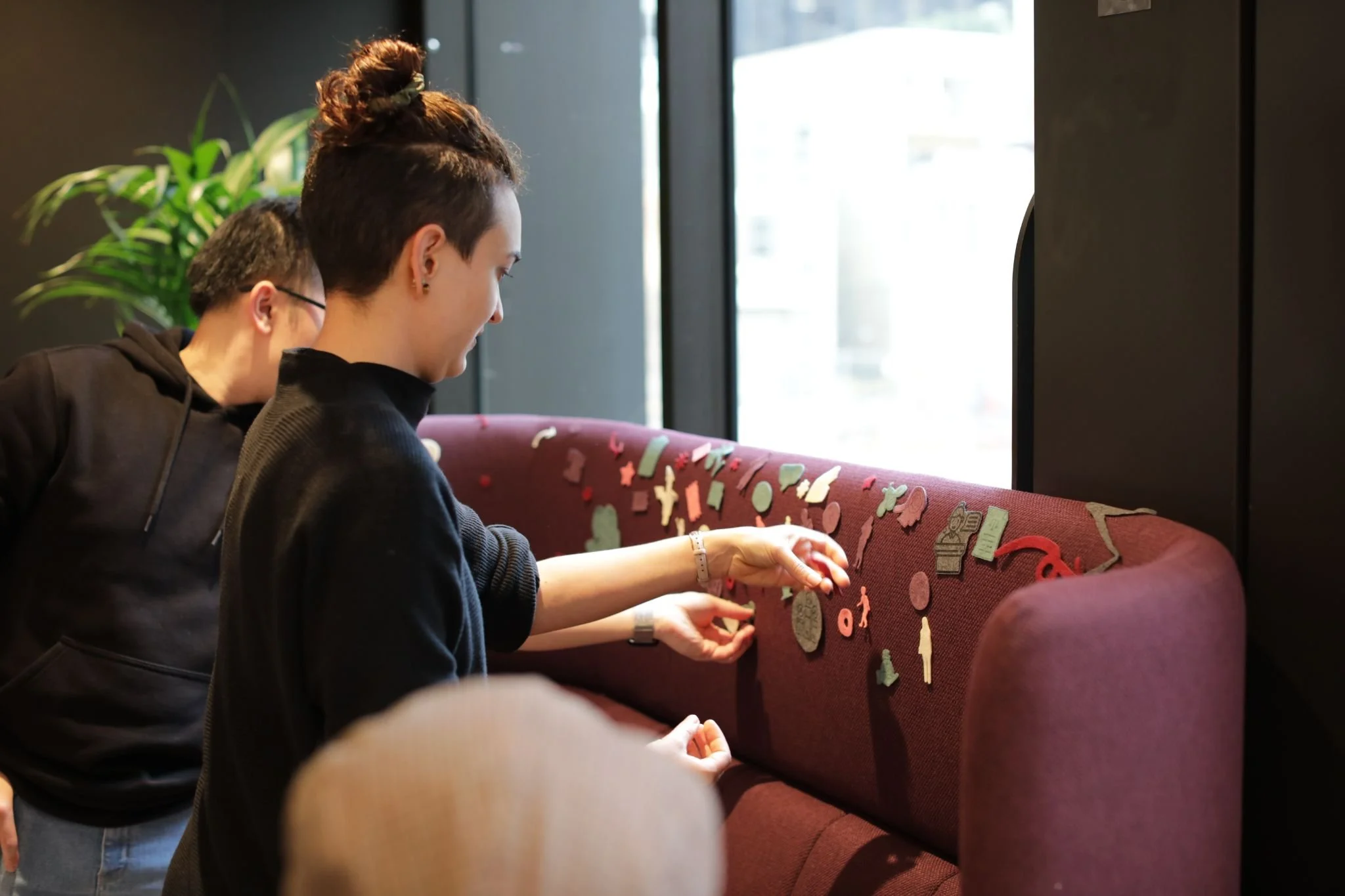about
Regen Melbourne is a place-based intermediary dedicated to systemic collaboration across Greater Melbourne.
OUR work
Founded at the end of 2020, in the wake of the Black Summer fires and in the midst of the COVID-19 lockdowns, our work is to articulate, influence and reorient prevailing systems so that Melbourne can become a beacon city for resilience and regeneration. This includes rebalancing the economy to ensure social justice and equity is the foundation of our city's future.
For a transition of this scale, we need new types of institutions to bridge the current state to the future potential. At Regen Melbourne, our unique approach to transitional infrastructure sits at the intersection of theory, practice and place, scaffolded through:
A Collective Vision: A community-defined direction with holistic measures which sets the agenda for change and enables our civic mandate;
A Portfolio of Earthshots: Wildly ambitious orientations for our city, strategic action-oriented pathways to transition to a resilient and regenerative future
A Systems Lab: An action-research platform which uses knowledge and experimentation to enable new systemic conditions
Our work is powered by a community of more than 200 organisations, and our work is internationally regarded as a leading example of systems work in practice and in place. Further background can be found in our 2024 Annual Report and our Living Strategy.
OUR STORY
Regen Melbourne was born in the dual crisis of the Black Summer fires and the COVID-19 pandemic. A small group of interested organisations and individuals quickly became a larger group and a 9-month community-led research process began. We explored our collective vision for a regenerative Melbourne and included participatory workshops, leadership interviews, roundtables, and countless hours of data analysis. The result was our foundational report, Towards a Regenerative Melbourne, which was released in April 2021.
Our initial work used Doughnut Economics as a framework and resulted in our co-created vision statement, our goal to move Melbourne into the safe and just space of the Melbourne Doughnut, and a roadmap for collective action.
After two years of initial experimentation and discovery, Regen Melbourne has emerged as a new way of organising at scale. Our team now plays a vital role across Greater Melbourne:
Field building: Connecting partners and knowledge flows, and building new narratives across the city;
Orchestration: Driving new collaborative formations and enabling partners to deepen their impact; and
Intervening: Catalysing and leading systemic interventions through tangible, strategic projects.
our vision
Our collective vision was created in 2020-2021 together with over 500 people and 50 organisations. Against the backdrop of the Black Summer and covid-lockdowns we co-created a collective vision for Greater Melbourne, setting out a deep shared purpose: to live in balance between people and planet. The Vision sets our agenda for change and enables our civic mandate.
our purpose
In this foundational process we also co-created a community compass to guide progress towards our vision. This was developed using Doughnut Economics as a methodology and resulted in the Melbourne Doughnut. Over the next 2 years, through an epic collaboration process, this doughnut became the City Portrait, a holistic, digital and collective measure of progress for Greater Melbourne.
THE MOMENT IS NOW
Despite the many strengths of our beautiful city, we are facing a web of social and environmental challenges including climate impacts, housing access, inequality, food security, insecure work, loneliness and declining trust. We can all remember the smoke that covered Melbourne during the Black Summer in early 2020, and the unequal way different parts of this city suffered during the COVID-19 pandemic.
We live in a metacrisis of interconnected challenges.
Systemic problems need systemic solutions. Single actors don’t solve systems problems. We need coherent action by alliances of unusual actors, from business, non-profit, government, universities and the general public.
The trouble is that our current system is not built for this type of epic collaboration. We urgently need to break out of our siloes and increase our collective ambition. We need new structures that reactivate and reorganise our system. And we need radically ambitious and tangible projects that chart a collective course to a regenerative and resilient future.
We need new approaches. The moment demands it.

















